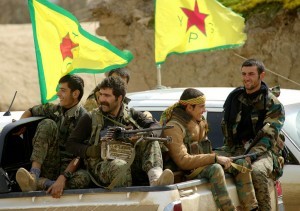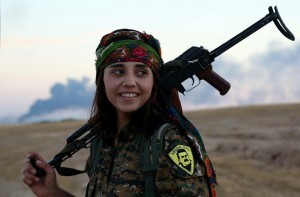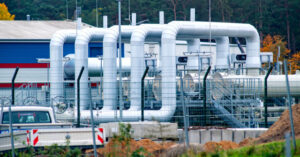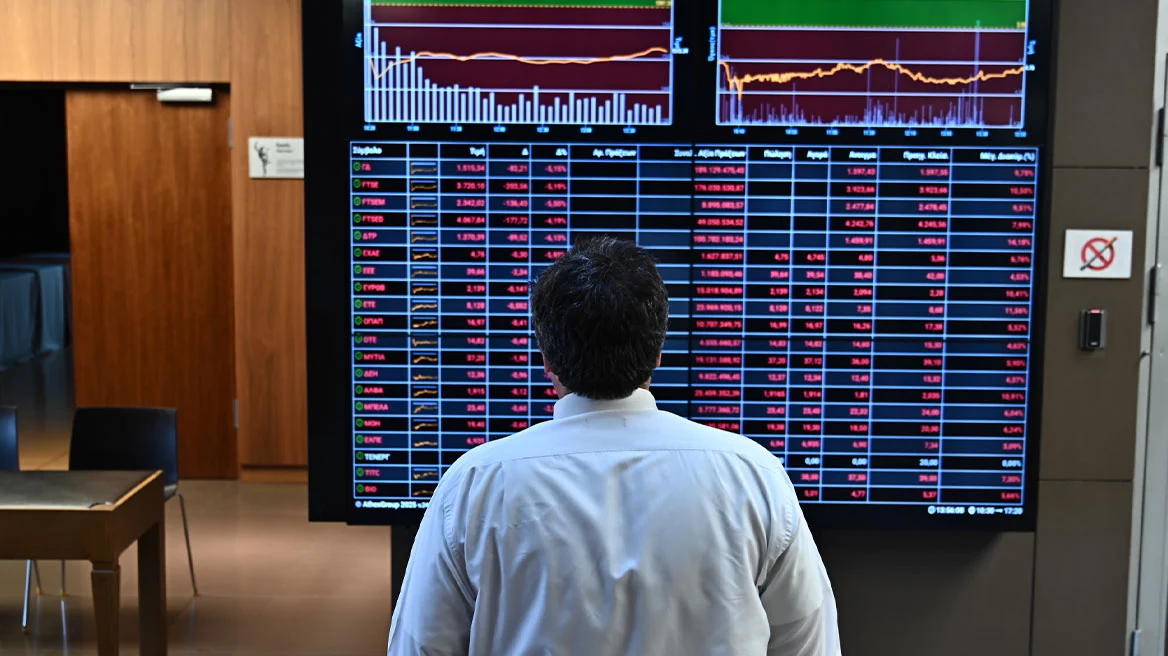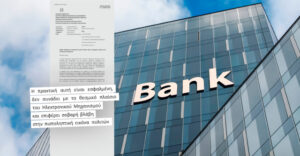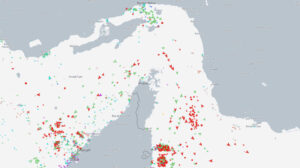We have all heard about the Kurds in Syria, about their fight against ISIS.
But do we have a clear idea about them? What do we really know apart from fragmented pieces of information?
Read this well balanced analysis. It is worth it:
“What happens when a black rat mates with a white rat?” The question prompted nervous giggles in a classroom in northeastern Syria. A dark-haired girl in a white hijab hazarded a guess: “All their babies will be born black.”
Of the 23 teenagers attending the evening biology prep course at Taleyah lycee in the town of Derik, only three are boys. “Most boys their age are either fighting Daesh or have fled the country,” teacher Shiwan Jamil explained during a brief pause in the lesson.
Daesh is the Arabic acronym for the Islamic State (IS), and the Syrian Kurds who are running Derik along with the rest of northeastern Syria have remained locked in a vicious war with the jihadis ever since they bloodily erupted onto the scene in 2014. Two of Jamil’s students have died in battle.
Fighting under the banner of the People’s Protection Units (YPG), the Syrian Kurds’ skill and valor have made them the United States’ top ally in the fight against IS — and the darlings of the international media. With their flowing braids and precise marksmanship, female fighters draw much of the fawning. But with a few notable exceptions, there is seldom any mention of the Syrian Kurds’ history. Who are they? What motivates them? What was life like for them before the Syrian uprising, and what is it like for ordinary people today?
“When journalists come here all they want is to rush from one front line to the other. The Kurds are always portrayed as great warriors, but rarely as human beings,” grumbled Barzan Iso, a local reporter who doesn’t hide his sympathy for the YPG. Thanks to its relative distance from the battlefield and its mixed population of Kurds, Christians and displaced Arabs, Derik combines the strands of that other life that few bother to explore. It’s infused with hope and fear and plenty of drudgery.
Glacial temperatures in the classroom where Jamil unveils the secrets of genetics are unbroken by a sputtering diesel-fueled stove. The paint on the wall is peeling. The desks are battered. Rats scurry amid piles of debris cluttering the stairwells. But the spirits of the students are intact. They laugh easily at Jamil’s jokes and meet a reporter’s gaze with startling confidence. Then the lights go off. “We have two hours of electricity, then it goes out for an hour then comes back on again,” Jamil said.
His class encapsulates the transitional and often contradictory nature of the Kurdish-administered territory that was called Rojava or Western Kurdistan until it was rechristened the “Democratic Federal System of Northern Syria” in December. Cynics say the change is a ruse to mask Kurdish domination over the area. Rojava’s leaders say the federation is a blueprint for the secular, egalitarian, multi-ethnic and federal plan they giddily imagine for the rest of Syria. Most people still call the place Rojava, and its administrators make no secret of their desire to dilute decades of government-enforced Arabization crafted to efface the Kurds.
Education is a key pillar of this new order, and mandatory schooling in the Arabic language is being phased out. Kurds, who make up the largest ethnic group in Rojava, are finally receiving education in the long-banned Kurmanji dialect of Kurdish that is spoken here. Arabs continue to send their children to Arabic schools while Syrian Orthodox Christians, also known as Syriacs, tutor their children in their own tongue.
In practice, things are a lot fuzzier. Young Kurdish students are easily immersed in Kurdish-language education, though the program remains very much in the pilot stage. But Kurdish and Syriac high school students who are caught in the middle continue their schooling in Arabic-language facilities affiliated with the Syrian Ministry of Education. Only these schools, which include the Taleyah lycee, offer diplomas that are internationally recognized. Some of the Taleyah students are Arabs. Jamil, a Kurd, teaches in Arabic but replies to his Kurdish students in Kurmanji.
Training teachers to teach Kurds in Kurdish was among the Rojava leadership’s first goals when it began running the three Kurdish-majority cantons — Jazeera, Kobani and Afrin — that Syrian President Bashar al-Assad’s forces had abandoned to combat opposition rebels elsewhere in Syria. The summer 2012 withdrawal prompted accusations of collusion between the Kurds and the regime that persist to this day. Not surprisingly, Rojava officials bristle at the suggestion — but few as strongly as Fawza al-Yusuf. “There is a huge difference between withdrawal and collaboration. The Syrian army withdrew,” she said.
Yusuf is a member of the Movement for a Democratic Society (TEV-DEM), the governing coalition in Rojava that draws its ideological inspiration from Abdullah Ocalan, the imprisoned leader of the Turkish Kurdish rebel group called the Kurdistan Workers Party (PKK). When Ocalan and his comrades set up the PKK in 1978, they said they would be fighting for an independent Kurdistan that would unite the Kurds of Iran, Iraq, Syria and Turkey. But over time the PKK scaled back its ambitions as geopolitical realities set in. Ocalan now preaches a radical brand of communalism that rejects ethnic nationalism and national borders and encourages gender equality and environmental friendliness in their stead.
Rojava has become the laboratory for these ideas, poached in part from late American libertarian socialist Murray Bookchin. Yet for all its talk of diversity, Rojava is unabashedly Kurdish, its leadership is top-down and Kurds like Yusuf with PKK backgrounds mostly call the shots. Iso, the reporter, said Yusuf is a fairly big fish. His assertion was borne out a week later when I saw her on television reading out the “charter” of the Democratic Federal System of Northern Syria.
I met Yusuf for the first time in Iso’s modest, one-story house on a narrow street in the heart of Derik. It was decked out with Christmas lights and an artificial tree that go on and off with the electricity. Yusuf wore a big smile and was flanked by two girls carrying Kalashnikov rifles. One of the girls had large, dark eyes and a pale, moonlike face. She looked no older than 12, but Yusuf told me that she is 15 and that her “code name” is “Agiri,” which means “fiery” in Kurmanji. Agiri ran away from home to join the female unit of the YPG. The adolescent was assigned to Yusuf’s security because she was too young to be on the front lines. Apparently warnings from international rights groups to keep minors off the battlefield are having an effect. Yusuf waved the girls out of the room and tucked her legs under her, and our conversation began.
Like most TEV-DEM members, Yusuf was drawn to Kurdish politics by Ocalan. She was studying law at Aleppo University in the early 1990s when she first heard about the PKK leader. She engineered a meeting with him, dropped out of university and, though she doesn’t say so, probably joined the PKK.
Still, Yusuf was engagingly frank. Unlike many of her colleagues, she made no pretense of not speaking Turkish, the lingua franca in the PKK. When I came to Rojava for the first time in 2014, all the TEV-DEM leaders I addressed in Turkish claimed to not understand, probably for fear that doing so would betray their links to the PKK and bar them from travel to Europe and the United States, where the PKK is formally listed as a terrorist organization. Yet each time I asked a provocative question, their faces would tighten before it was even translated. When I told Yusuf this, she laughed and continued to describe her views on Ocalan. “Ocalan reawakened our Kurdish identity. He created a people with a sense of history and of self. Now we are putting those ideas into practice.”
That is easier said than done, and Derik’s mayor, Dicle Hamu, is struggling to keep up. On first impression, she is doing a decent job. Derik seems an orderly and safe place. “There is stability and security here, and business is better since Assad withdrew,” confirmed Suleyman Temi, a local jeweler. “In times like these I can display all my gold in this window — imagine.” There is no rubbish on the streets. Most of the mud and dust are from new buildings that are being erected throughout the town, surely a sign of confidence in Rojava’s future.
But many residents complain that their leaders’ management skills do not match their prowess on the battlefield. “Sure, in the past five years we witnessed developments that we could never have imagined,” said Jamil the biology teacher. “I can finally speak my own language freely and the Kurds are defending themselves for the first time, but otherwise nothing seems to work, and our standard of living has dropped. I am unhappy and pessimistic about the future.”
Hamu told me her biggest problem is funding, an issue compounded by Turkey’s continued blockade. The municipality raises the bulk of its paltry revenues from the town’s erratic electricity and water supplies, and the cantonal administration pitches in with a share of the taxes that it levies on trade with Iraqi Kurdistan. Hamu said the municipality also runs agricultural cooperatives, textile workshops and a driving school. “We’ve issued 350 licenses so far, and most of our pupils are women,” she beamed.
The newly minted drivers were nowhere in sight, and there was an unsettling dearth of traffic. The “mechanics’ neighborhood,” incongruously located near the remains of a French fort where prisoners were hanged, offered a possible explanation. Rows of forlorn cars, some stripped to their chassis, awaited repairs. “They sit here for months until the spare parts are smuggled in,” confided Said Ali, a local mechanic. Most of the parts are carried atop mules via Mount Sinjar in Iraqi Kurdistan. The mountain fell under PKK control in 2014, when the group moved in to rescue thousands of Yazidis from imminent slaughter by IS.
Read all the analysis here: al-monitor.com
Ask me anything
Explore related questions
